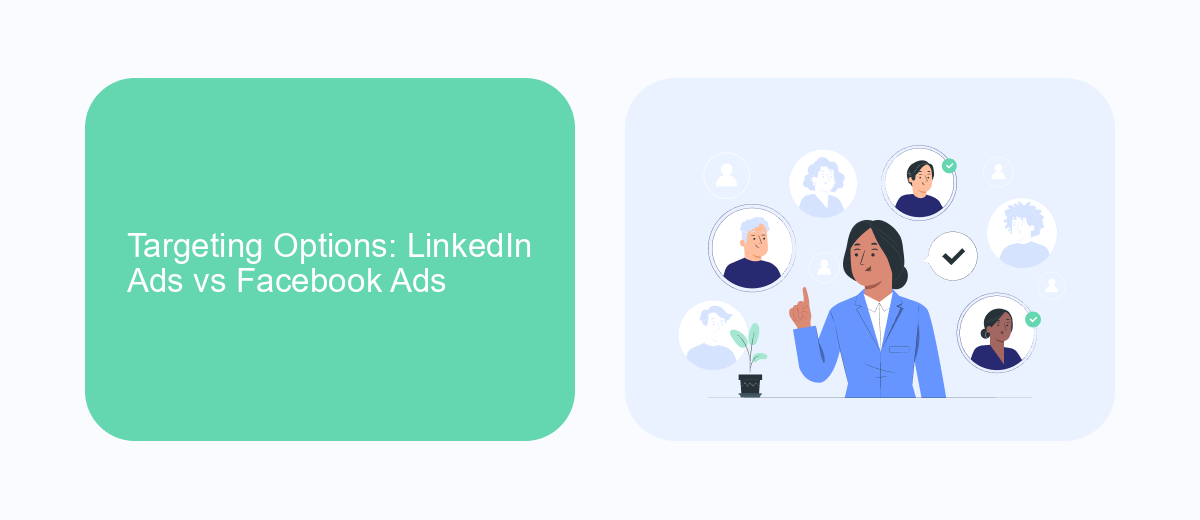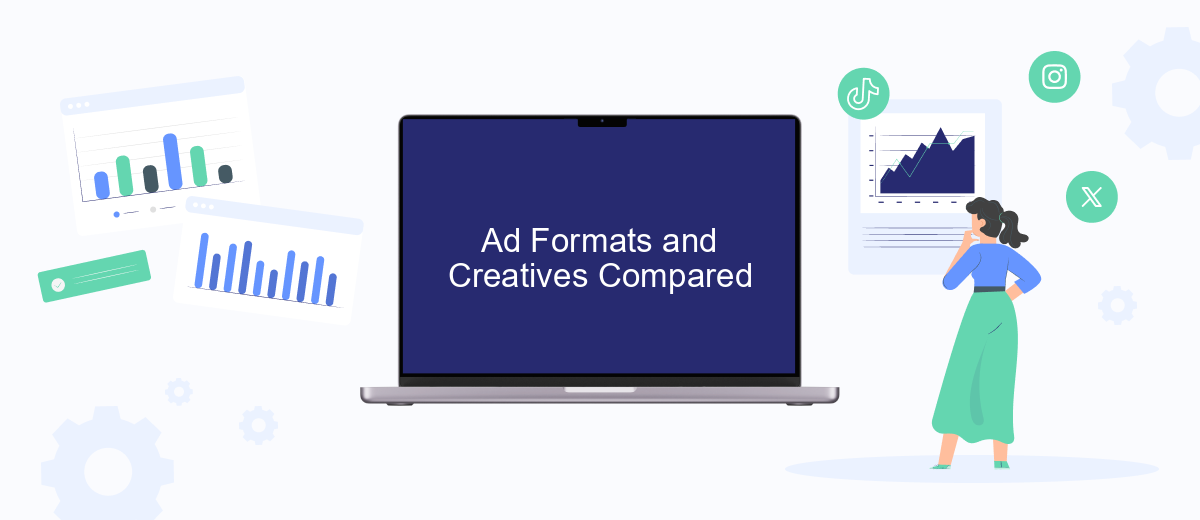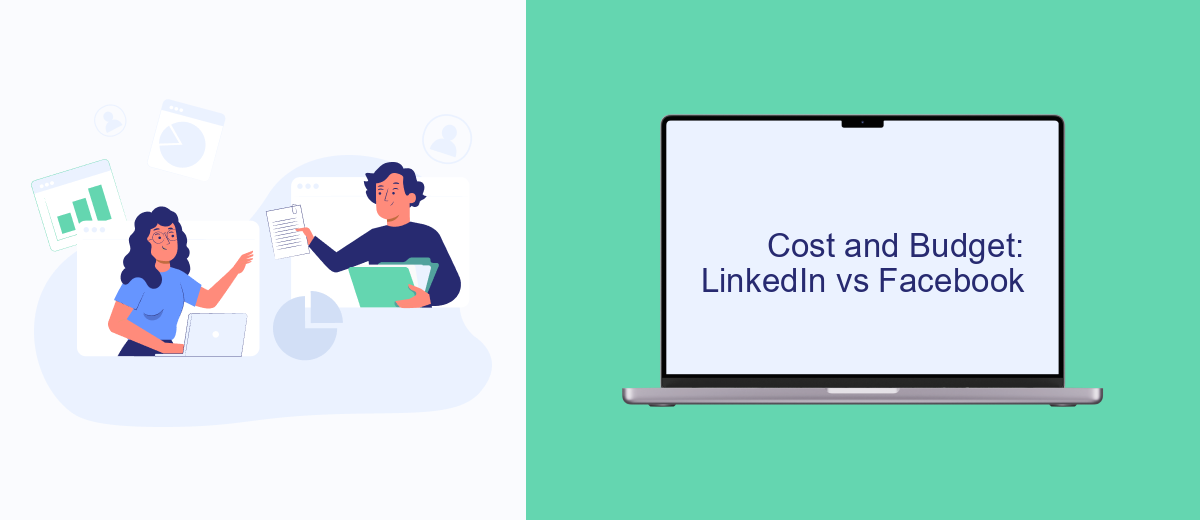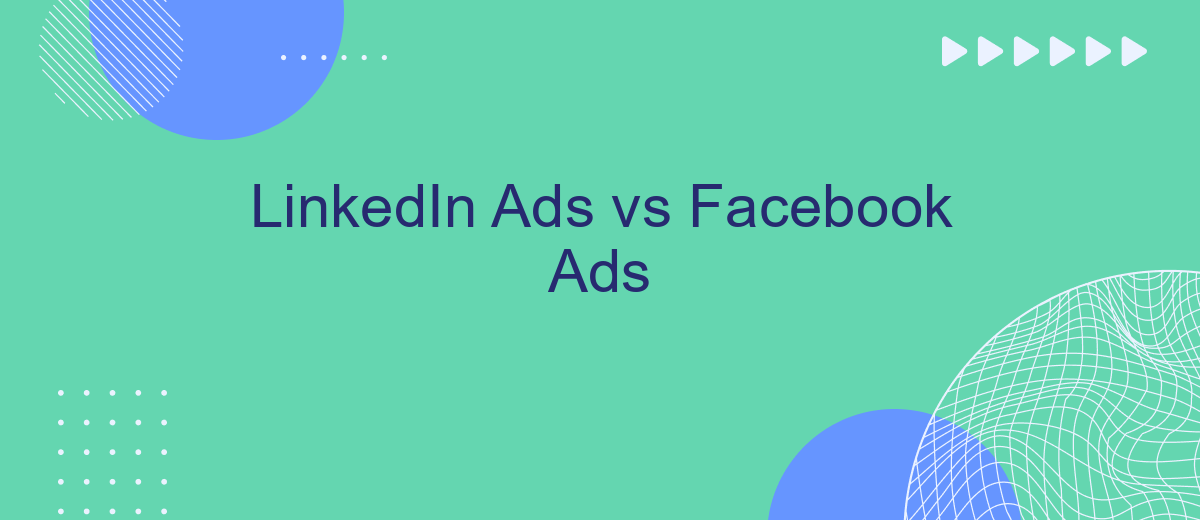In today's digital marketing landscape, choosing the right advertising platform is crucial for reaching your target audience effectively. LinkedIn Ads and Facebook Ads are two of the most popular options, each offering unique benefits and features. This article delves into the strengths and weaknesses of both platforms, helping you determine which is best suited for your business goals and marketing strategy.
LinkedIn Ads vs Facebook Ads: Overview
When it comes to digital advertising, LinkedIn Ads and Facebook Ads are two powerful platforms that cater to different audiences and business objectives. LinkedIn Ads are primarily designed for B2B marketing, offering precise targeting options based on professional demographics such as job title, industry, and company size. Facebook Ads, on the other hand, excel in B2C marketing with a vast reach and advanced targeting capabilities based on user interests, behaviors, and demographics.
- LinkedIn Ads: Ideal for B2B marketing, higher cost per click, professional audience targeting.
- Facebook Ads: Suitable for B2C marketing, lower cost per click, extensive reach and engagement.
- LinkedIn Ads: Offers features like Sponsored Content, InMail, and Lead Gen Forms.
- Facebook Ads: Provides options like Carousel Ads, Video Ads, and Dynamic Ads.
Choosing between LinkedIn Ads and Facebook Ads depends on your target audience and marketing goals. If your focus is on reaching professionals and decision-makers, LinkedIn Ads might be the better choice. However, if you aim to engage a broader audience with diverse interests, Facebook Ads could be more effective. Both platforms offer unique advantages, and understanding these differences can help optimize your advertising strategy.
Targeting Options: LinkedIn Ads vs Facebook Ads

When comparing LinkedIn Ads and Facebook Ads, targeting options play a crucial role in determining which platform best suits your advertising goals. LinkedIn Ads is renowned for its professional targeting capabilities, allowing advertisers to reach audiences based on job title, industry, company size, and even specific skills. This makes it an ideal choice for B2B marketers aiming to connect with decision-makers and professionals in specific fields. LinkedIn’s targeting options are particularly advantageous for campaigns focused on lead generation and fostering professional relationships.
On the other hand, Facebook Ads offers a broader range of targeting options, catering to both B2B and B2C markets. Advertisers can target users based on demographics, interests, behaviors, and life events, providing a more comprehensive reach. Facebook’s advanced algorithms also enhance targeting precision through lookalike audiences and retargeting strategies. For businesses seeking to streamline their lead generation process, integrating services like SaveMyLeads can automate the flow of leads from Facebook Ads to CRM systems, ensuring efficient follow-ups and maximizing conversion potential. Ultimately, the choice between LinkedIn and Facebook Ads depends on your specific audience and campaign objectives.
Ad Formats and Creatives Compared

When choosing between LinkedIn Ads and Facebook Ads, understanding the differences in ad formats and creative options is crucial. Each platform offers unique ways to engage with your target audience, tailored to their respective user bases. LinkedIn Ads are typically more suited for B2B marketing, offering professional targeting, while Facebook Ads cater to a broader audience, ideal for B2C campaigns.
- LinkedIn Ads: Primarily focused on professional content, LinkedIn offers Sponsored Content, Sponsored InMail, Text Ads, and Dynamic Ads. These formats are designed to engage professionals and decision-makers, providing options for direct messaging and personalized content.
- Facebook Ads: With a focus on visual engagement, Facebook offers Image Ads, Video Ads, Carousel Ads, Slideshow Ads, and Collection Ads. These formats allow for creative storytelling and are optimized for mobile engagement, appealing to a wide range of demographics.
In conclusion, the choice between LinkedIn and Facebook ad formats depends largely on your marketing objectives and target audience. LinkedIn excels in professional networking and lead generation, while Facebook provides more diverse and visually engaging options for reaching a broader audience. Tailoring your creatives to the strengths of each platform can significantly enhance your campaign's effectiveness.
Cost and Budget: LinkedIn vs Facebook

When considering advertising on LinkedIn versus Facebook, cost and budget are crucial factors. LinkedIn generally has a higher cost per click (CPC) compared to Facebook. This is primarily due to its professional user base, which often includes decision-makers and industry leaders. As a result, LinkedIn ads can be more expensive, but they offer the potential for higher-quality leads.
On the other hand, Facebook offers a more cost-effective advertising solution, with lower CPC and broader audience reach. This makes it an attractive option for businesses with limited budgets who still want to achieve significant outreach. Facebook's advanced targeting options also allow advertisers to maximize their budget by reaching the most relevant audience.
- LinkedIn CPC: Higher, targeting professionals and B2B audiences.
- Facebook CPC: Lower, suitable for broader B2C campaigns.
- Budget Flexibility: Facebook offers more flexible budget options.
- Lead Quality: LinkedIn may provide higher-quality leads.
Ultimately, the choice between LinkedIn and Facebook ads depends on your business goals and target audience. If you're focused on B2B marketing and willing to invest more for quality leads, LinkedIn may be the better option. Conversely, for B2C campaigns with a focus on cost-efficiency, Facebook could be the ideal platform.


SaveMyLeads: LinkedIn & Facebook Ads
When comparing LinkedIn Ads and Facebook Ads, businesses often face the challenge of choosing the right platform for their marketing needs. LinkedIn Ads are particularly effective for B2B companies, offering precise targeting options based on job titles, industries, and professional interests. This makes LinkedIn an ideal platform for reaching decision-makers and professionals. On the other hand, Facebook Ads provide a broader audience reach with advanced targeting capabilities, making it suitable for B2C campaigns. With its diverse demographic, Facebook allows businesses to engage with a wide range of potential customers, enhancing brand visibility and driving conversions.
To maximize the effectiveness of ad campaigns on both platforms, integration tools like SaveMyLeads can be invaluable. SaveMyLeads simplifies the process of connecting LinkedIn and Facebook Ads with various CRM systems and marketing tools, ensuring seamless data transfer and real-time lead management. By automating these integrations, businesses can save time and resources, allowing them to focus on crafting compelling ad content and strategies. Whether you're targeting professionals on LinkedIn or a diverse audience on Facebook, leveraging integration services can enhance your advertising efforts and improve overall campaign performance.
FAQ
What are the main differences between LinkedIn Ads and Facebook Ads?
Which platform is more cost-effective for advertising?
How can I measure the success of my advertising campaigns on LinkedIn and Facebook?
Is it possible to automate and integrate LinkedIn and Facebook Ads management?
Which platform should I choose for lead generation?
Are you using Facebook Lead Ads? Then you will surely appreciate our service. The SaveMyLeads online connector is a simple and affordable tool that anyone can use to set up integrations for Facebook. Please note that you do not need to code or learn special technologies. Just register on our website and create the necessary integration through the web interface. Connect your advertising account with various services and applications. Integrations are configured in just 5-10 minutes, and in the long run they will save you an impressive amount of time.
